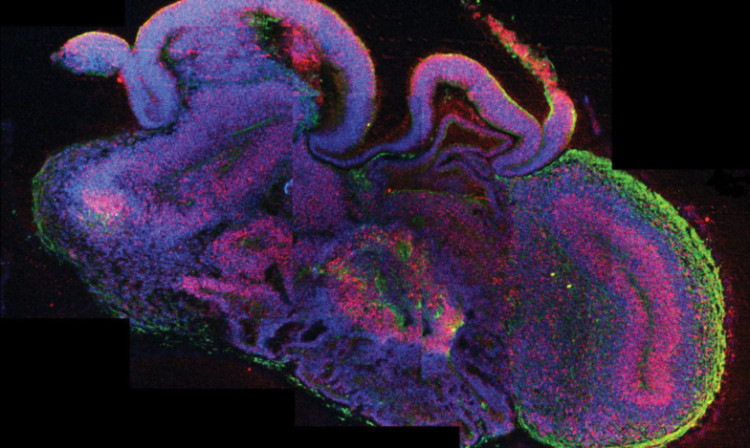A miniaturised “brain in a bottle” has been grown by stem cell scientists who hope it will lead to new treatments for neurological and mental diseases.
The tiny hollow “organoids”, measuring three to four millimetres across, have a structure similar to that of an immature human brain, including defined regions.
But the scientists insist they are still far from the science fiction fantasy of building a working artificial brain or even replacement parts for damaged brains.
The goal was to produce a biological tool that can be used to investigate the workings of the brain, better understand brain diseases and test out new drugs.
Dr Dean Burnett, lecturer in psychiatry at the University of Cardiff, said: “Saying you can replicate the workings of the brain with some tissue in a dish in a lab is like inventing the first abacus and saying you can use it to run the latest version of Microsoft Windows there is a connection there, but we’re a long way from that sort of application yet.”
Neuroscientist Professor Paul Matthews, from Imperial College London, said: “This study offers the promise of a major new tool for understanding the causes of major developmental disorders of the brain such as autism and schizophrenia, as well as testing possible treatments.”
